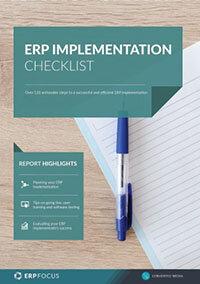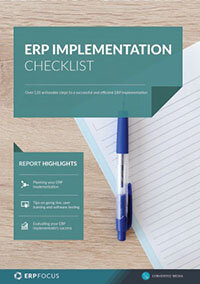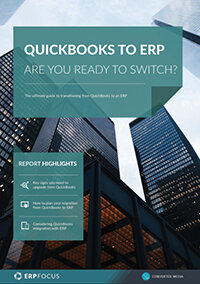Should your ERP upgrade copy existing processes?
When companies decide to implement a new system, there is one big decision that most need to make: should they attempt to replicate their existing system and ways of working or should they start with a clean sheet? A lot will depend on why they are changing. Some will be happy with their existing system but find that change is being forced on them; perhaps because their software is old and becoming unsupportable, or perhaps because they have simply outgrown it and it can no longer cope with the number of transactions and database records that are being projected for the future. Some will feel restricted by regulatory requirements, by the prospect of retraining hundreds, or perhaps thousands, of users, and others will simply feel, “If it ain't broke, don't fix it”.
There are advantages to, if not exactly cloning a system, then at least using it as a template for a new one. Given that ERP systems are about people and processes more than they are about software, one major task in terms of time and cost is in designing, documenting, and testing new ways of working. If these are being copied from the legacy system, then a lot of that effort is not required and both costs and implementation timescales can be reduced (and, of course, staff will not have to be retrained and have to progress along a new learning curve).
But there are also good reasons to start again with a clean sheet. The most basic is that it might simply not be possible to reflect existing ways of working in a new system without doing a totally unacceptable amount of modifications to it. Modifications add time, cost and risk to projects so, if companies select software that requires extensive and expensive modification, that is usually a sign that they have chosen the wrong system. Even if the new system is from the same authors as the old one, it is very likely that there are fundamental differences in system design and functionality because, if there weren't, there would have been little point in spending the king's ransom that the new system will have cost to develop.
The second thing to consider is that newer systems generally bring new options and alternative ways of doing things; some of which will be worthwhile and valuable improvements. When companies have used a particular software system for a number of years, they adapt to it and they work around its weaknesses to the extent that they stop noticing them. The workarounds become the accepted norm and the 'proper' way to do things. Companies are then unnecessarily restricted by any limitations that existed within their previous system even after it has been replaced. They owe it to themselves to continually look for better ways of doing things, and better things to do.
For example; not many years ago it was thought normal and acceptable to print hard copy sales invoices and to send them to customers via the mail. Then companies looked at automatically faxing them, then e-mailing them and then asking if they couldn't simply be passed electronically from the supplier's system to the customers'. Mailing hard copies of invoices is now an acceptable option only for companies that generate small numbers of invoices: the rest of the world has moved on.
An additional consideration is that moving to a new ERP system is the best opportunity that most companies will have had for many years to carry out a fundamental review of what they are doing, why they are doing it, and how they are doing it. And it will also probably be their last chance for many years. If companies are not planning to do something that will improve customer service levels, increase profitability and reduce costs, they can be sure that at least some of their competitors are.
Lastly; many companies target growth. They want to get bigger because that gives them economies of scale, improved market penetration, and a host of other advantages. But a system that was optimal for a small company cannot be optimal for a medium-size one. And a system that was optimal for a medium-size company cannot be optimal for a large one. Even large companies need to consider that the system that got them where they are today may not be the right one to get them to where they want to be tomorrow.
Free white paper

ERP Implementation Checklist
Over 120 actionable steps to implementing a new ERP successfully

Featured white papers
-

Quickbooks to ERP: Are You Ready to Switch?
Get the definitive guide to converting your business from Quickbooks to ERP
Download
Related articles
-

To switch ERP or upgrade ERP: that is the question
When legacy systems fail, the question of whether to switch to a new ERP or upgrade your existing...
-

Secret KPI: Why Your ERP Implementation Team Matters More Than Software
Learn how Godlan ensures successful ERP implementation for manufacturers with proven strategies &...
-

ERP process mapping during the selection
How to map your business processes during ERP selection

